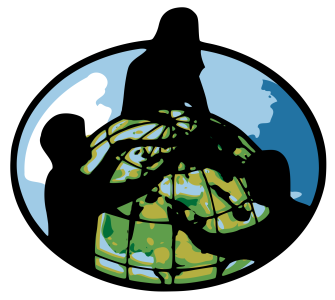A year ago, I wrote a piece in response to Buzzfeed’s Privilege Line exercise video. In it, I noted that while the exercise can be useful in pointing out how systemic oppression affects people, it also fails to show how non-dominant cultures often have overlooked assets that we should explore.
José Paez, a professor at CSUN, reached out about building upon my piece’s theory and putting it into practice. Below is a guest post from him, co-authored Sarah Mountz, Ph.D., MSW, Assistant Professor, CSUN MSW Department and Dimple Jain, Ph.D., Assistant Professor, CSUN Department of Educational Leadership and Policy Studies.
Last December (2015) I was invited along with with Dr. Sarah Mountz (CSUN Assistant Professor, MSW Dept.) and Dr. Dimpal Jain (CSUN Assistant Professor, Department of Educational Leadership and Policy Studies) to develop and co-facilitate an experiential activity for a workshop to help academic mentors better understand their privilege and power. The mentors (CSUN faculty) are part of CSUN’s Building Infrastructure Leading to Diversity (BUILD) and Promoting Opportunities for Diversity in Education and Research (PODER) project. BUILD PODER is an NIH grant funded program that utilizes critical race theory to address public health disparities by promoting the mentorship and inclusion of underserved student communities. A detailed description of the program:
BUILD PODER is one of a consortium of 12 National Institute of Health (NIH) programs designed to diversify the U.S. biomedical workforce. BUILD PODER takes a grass-roots approach to laying the groundwork for institutional change, using Critical Race Theory as a framework...the students, faculty, and administrators who make up the BUILD PODER community will be trained extensively in mentoring relationships and in the tenets of CRT, including the value of interdisciplinary and experiential approaches, challenges to dominant ideologies, the centrality of race and racism, and a commitment to social justice" (CSUN BUILD PODER, 2015. Executive Summary. California State University, Northridge).
In discussion with my colleagues/co-facilitators, we agreed that the Privilege Spectrum activity seemed to be a good fit to introduce the mentors and mentees to the ideas of race, privilege, and deficit thinking. My colleagues and I regularly use the Privilege Spectrum to make visible hierarchies of domination routinely taken for granted. In fact, our MSW Department facilitates the Privilege Spectrum every year at our student orientation. It’s a very effective tool, generating powerful discussions, and setting a tone for what students’ educational experience will be like.
However, we also acknowledge the limitations of the Privilege Spectrum, specifically the emphasis on barriers/disadvantages without recognition of participants’ resistance, hard work, and courage. Fortunately, we came across Christina Torres’ article, “The Privilege Line Is A Frustratingly Unfinished Exercise (and how to make it better...Maybe)” As educators who incorporate race and racism into our curriculum and pedagogy, we appreciated how Torres’s approach to the spectrum challenged the traditional parameters of the privilege activity.
After reading her article, we not only felt validated, acknowledged, but also inspired to develop asset-based questions reflecting resilience, resistance, and justice. This was a natural extension of the critical race theory approach that BUILD PODER centers and allowed us to also utilize community cultural wealth (Yosso, T.J. (2005). Whose culture has capital? Race, Ethnicity and Education, 8(1),) that challenges traditional notions of social and cultural capital. We moved forward in our preparation by enlisting 10 MSW students to help facilitate the activity as well as the post-activity dialogue. In addition to the standard Privilege Spectrum questions, we followed Christina’s lead and developed a set of asset-based statements.

We began the workshop with a brief description of the intention and purpose as to the importance of recognizing power/privilege within the relationships and spaces we occupy. Since many of our MSW students had previous experience participating in the standard privilege spectrum, we decided they should lead and demonstrate the activity. This allowed mentors and mentees to observe rather than directly participate. Following a debrief regarding where students’ ended up on the spectrum, we reset the line and facilitated the asset-based spectrum followed by another debrief. Student’s noted the asset-based spectrum offered a much richer and rewarding experience; they didn’t leave the activity feeling isolated. Instead, they felt a sense of solidarity, alliance, support, were reminded of their power, and their acts of resistance. Lastly, our MSW students engaged the mentors and mentees in small group discussions to elicit reactions and observations.
Building from the list Christina created, here are the questions we developed:
Step forward if you are earning an advanced degree, despite someone telling you couldn’t do it.
Step forward if you’ve organized, protested, resisted systems of oppression.
Step forward if you spoke up or took action to interrupt a microagression you witnessed.
Step forward if you work, are a parent, and/or take care of someone while going to school.
Step forward if you’ve learned and practiced proactive coping skills to help you navigate sexual harassment, racial profiling, cis-sexism, etc.
Step forward if you continue to show up despite experiencing stigma due to a real or perceived disability, mental illness, or other physical/mental impairment.
Step forward if you’re in a position of power that has traditionally been held by people with dominant identity and social location markers.
Step forward if you’re family immigrated to this country.
Step forward if you’ve challenged racism, sexism, classism, homophobia, transphobia, audism, and any other -ism.
Step forward if the struggles of your ancestors/communit(ies) are a source of your resilience.
We encourage others to borrow and build upon these statements and to ensure a dialogical space after the activity to debrief how the 2 sets of statements differed in scope and experience.
José Paez teaches in the Master of Social Work (MSW) Department at California State University, Northridge (CSUN). He encourages any questions or thoughts: jose.paez@csun.edu




